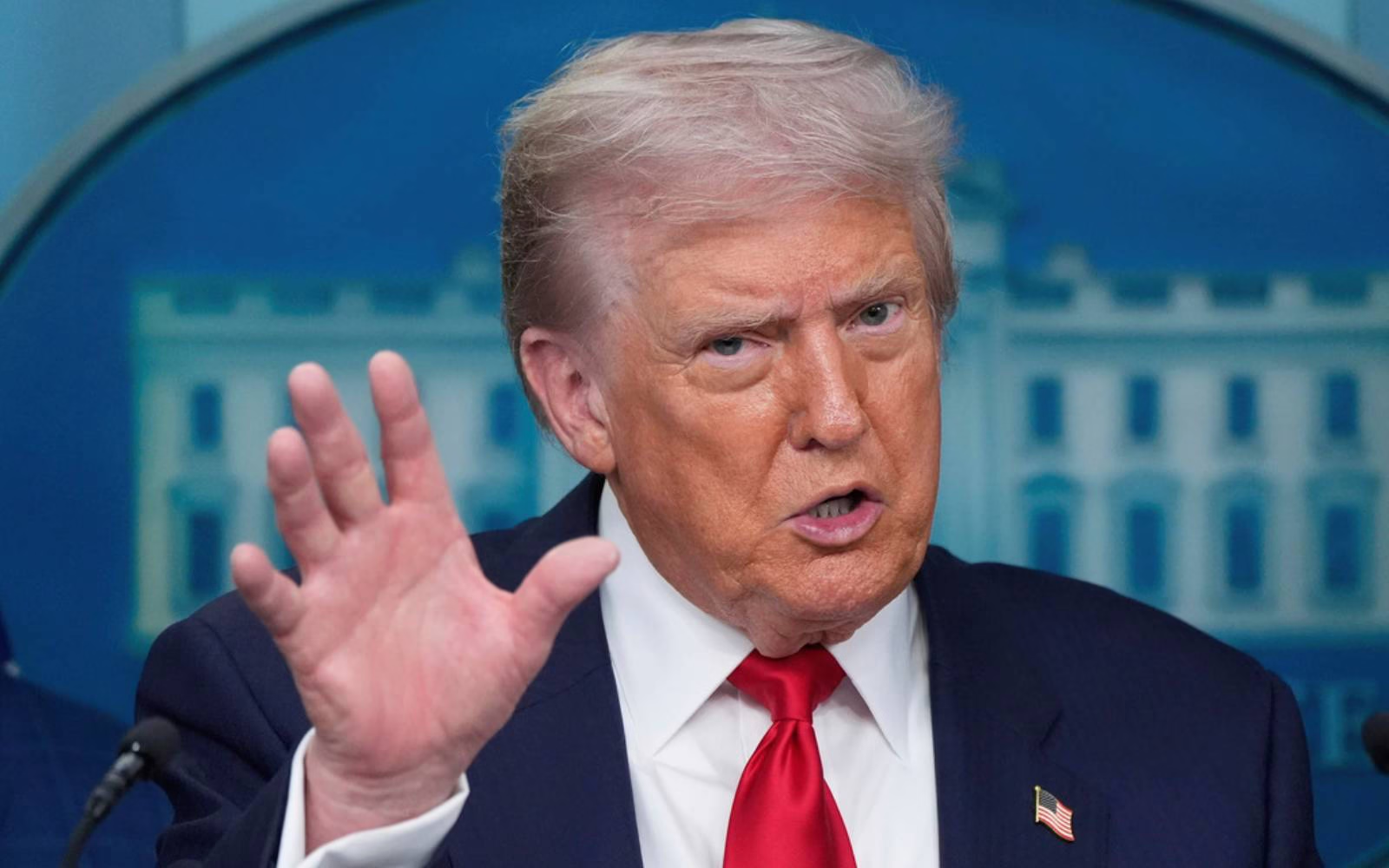
In a dramatic escalation of his ongoing battle with lawmakers over federal spending, President Donald Trump canceled $4.9 billion in foreign aid, triggering outrage across party lines and setting the stage for a major showdown with Congress. The move, announced on August 29, 2025, highlights not only the President’s determination to cut back on what he calls “wasteful spending abroad,” but also the growing friction between the executive and legislative branches as a potential government shutdown looms.
A Rare and Controversial Tactic
Trump used a rarely invoked budgetary maneuver known as a “pocket rescission.” This strategy allows the president to propose cutting funds so late in the fiscal year that Congress does not have the 45 days it normally needs to review the request. Because the fiscal year ends on September 30, the funds automatically expire if Congress cannot act in time.
White House officials defended the decision, arguing that the Impoundment Control Act gives the President this authority. “We are exercising our responsibility to ensure that taxpayer dollars are used in America’s best interest,” a senior administration aide told reporters. “Too often, foreign aid ends up supporting projects that have little impact on U.S. citizens.”
What Programs Were Cut?
The $4.9 billion rescinded included funds for the State Department, USAID, global health programs, peacekeeping missions, and pro-democracy initiatives overseas. Critics say many of these programs are vital for U.S. influence abroad, particularly at a time when China and Russia are expanding their global presence.
According to officials familiar with the cuts, the aid covered everything from humanitarian relief and economic development to peacekeeping in Africa and pro-democracy efforts in Eastern Europe. By halting these funds, Trump is signaling a sharp pivot toward his long-standing “America First” foreign policy vision.
Bipartisan Outrage in Congress
Reaction from Capitol Hill was swift and fierce. Lawmakers from both parties condemned the move, warning that it undermines Congress’s constitutional power to control federal spending.
Senator Susan Collins (R-Maine), a moderate Republican often critical of Trump, called the move “deeply troubling” and suggested it sets a dangerous precedent. “Congress, not the White House, holds the power of the purse,” Collins said. “This maneuver erodes one of our core checks and balances.”
Democrats were even more forceful. Senate Minority Leader Chuck Schumer (D-New York) accused Trump of “trampling the Constitution” and warned that the decision could push the government closer to a shutdown. Senator Patty Murray (D-Washington), chair of the Senate Appropriations Committee, said the cuts would harm U.S. credibility on the global stage.
Legal Battles Likely Ahead
Experts predict that Trump’s decision will face immediate legal challenges. The Impoundment Control Act was passed in the 1970s precisely to prevent presidents from unilaterally withholding funds approved by Congress. Critics argue that the so-called “pocket rescission” loophole Trump used violates the spirit of that law.
“This is essentially an attempt to seize budgetary power from Congress,” said Sarah Binder, a professor of political science at George Washington University. “If it stands, it could fundamentally alter the balance of fiscal authority between the branches of government.”
A Looming Government Shutdown
The timing of Trump’s move adds more tension to an already fraught budget season. With the fiscal year ending in just weeks, lawmakers are still scrambling to pass funding bills to keep the government open. Trump’s aggressive foreign aid cancellation could make those negotiations even harder, increasing the risk of a government shutdown in late September.
Democrats argue that Trump is using the budget fight to score political points ahead of the 2026 midterm elections, portraying himself as a defender of American taxpayers. Republicans, meanwhile, are divided: while fiscal conservatives applaud the cuts, moderates fear the move will backfire by alienating allies and destabilizing global partnerships.
International Fallout
Foreign governments are watching closely. Allies who rely on U.S. support for humanitarian programs, democracy-building, and peacekeeping missions now face uncertainty. Diplomats warned that the abrupt cancellation could weaken America’s credibility just as rivals like China are increasing their financial footprint abroad.
“This decision sends a troubling message,” one European diplomat told reporters. “If the United States can simply cancel aid at the stroke of a pen, how can partners trust long-term commitments?”
Trump’s Political Gamble
For Trump, however, the political calculation seems clear. Cutting billions in foreign aid reinforces his long-standing “America First” brand and appeals to his core base, which has long been skeptical of overseas spending. In speeches and rallies, Trump has repeatedly questioned why U.S. taxpayers should fund projects in faraway countries while domestic issues remain unresolved.
“This is money better spent at home,” Trump said during a recent address. “We are done funding endless foreign programs that do nothing for the American people.”
What Comes Next?
As September 30 approaches, the clash over spending is expected to intensify. Congress may seek to challenge Trump’s move in court or attempt to restore the funds in future appropriations. However, the immediate impact is that billions in foreign aid are effectively frozen, and America’s global partners are left in limbo.
Whether Trump’s gamble strengthens his hand in the budget negotiations or sparks a constitutional crisis will depend on how lawmakers and the courts respond in the coming weeks. One thing is certain: by canceling $4.9 billion in foreign aid, Donald Trump has not only escalated his fight with Congress but also reignited a debate over the limits of presidential power in America’s fragile balance of governance.



